Best Analysis: When Premium RO Membranes Are the Most Economical Choice| Insights by AQUALITEK
Selecting the right reverse osmosis (RO) membrane isn’t just about upfront cost—it’s about total lifecycle performance. This article analyzes when investing in high-end membrane brands, despite their higher price, delivers better long-term value through reduced energy consumption, lower maintenance, and longer operational lifespan.
- ✅1. Introduction
- ✅2. Understanding Lifecycle Cost (LCC) in RO Systems
- Example comparison:
- ✅3. When Premium Membranes Are More Economical
- (1) High-Salinity or High-Fouling Feedwater
- (2) Large-Scale or Continuous Operation Systems
- (3) Energy-Intensive Operations
- (4) Sites with Limited Maintenance Resources
- (5) Projects Requiring Consistent Water Quality
- ✅4. Quantitative Example: Lifecycle Cost Comparison
- ✅5. Design and Operational Recommendations
- ✅6. Conclusion
✅1. Introduction
In industrial water treatment and desalination projects, membrane elements are the heart of any RO (Reverse Osmosis) system.
Many operators face the same question:
Should we pay more for a premium membrane brand—or choose a cheaper one to lower capital costs?
While regular brands can be attractive due to their lower unit prices, the total lifecycle cost (LCC)—which includes energy, maintenance, cleaning chemicals, replacement frequency, and downtime—often reveals a different story.
Under specific operating conditions, top-tier membranes (such as DuPont FilmTec™, Hydranautics, or Toray) can actually be more economical over the long run.
✅2. Understanding Lifecycle Cost (LCC) in RO Systems
The LCC of an RO membrane is the total cost incurred over its operational life, not just its purchase price.
LCC formula:
LCC = Initial Cost + Energy Cost + Chemical Cost + Maintenance Cost + Replacement Cost + Downtime Loss
Example comparison:
|
Cost Component |
Premium Membrane |
Regular Membrane |
|
Purchase cost |
Higher |
Lower |
|
Energy consumption |
Lower (higher flux efficiency) |
Higher |
|
Cleaning frequency |
Less frequent |
More frequent |
|
Lifespan |
4–6 years |
2–3 years |
|
Downtime |
Minimal |
More frequent replacements |
|
Overall cost over 5 years |
↓ Lower total |
↑ Higher total |
The data clearly show that operational efficiency and stability can outweigh the initial savings of low-cost membranes.
✅3. When Premium Membranes Are More Economical
Below are scenarios where high-end RO membranes become the more cost-effective choice.
(1) High-Salinity or High-Fouling Feedwater
In seawater desalination or industrial wastewater reuse, the feedwater often contains:
•High TDS (>35,000 mg/L)
•Silica, iron, or organic compounds
•Frequent SDI (Silt Density Index) fluctuations
Premium membranes provide:
•Better chemical resistance
•Higher salt rejection (99.8%+)
•Anti-fouling surface coatings
Result: Lower cleaning frequency and longer stable operation, reducing downtime and chemical costs.
(2) Large-Scale or Continuous Operation Systems
For municipal desalination plants, power plants, or semiconductor ultrapure water systems, any downtime translates to significant production loss.
Top-tier membranes offer:
•Consistent flux under variable load
•Higher mechanical durability against pressure surges
•Long-term stability over 5–7 years
Result: Reduced replacement cycles and lower cost per cubic meter of water produced.
(3) Energy-Intensive Operations
Membrane performance directly affects system operating pressure—and therefore, energy consumption.
Premium membranes typically feature:
•Lower pressure drop (ΔP)
•Higher permeability (LmH/bar)
•Optimized element design for lower energy input
Example:
A 10% reduction in operating pressure can save up to 5–8% in total plant energy cost, which far outweighs the higher purchase cost.
(4) Sites with Limited Maintenance Resources
In remote areas or unmanned stations (e.g., islands, offshore rigs), reducing the frequency of cleaning and replacements is essential.
High-end membranes are less prone to fouling, reducing the need for operator intervention.
Result: Lower labor cost and higher operational reliability.
(5) Projects Requiring Consistent Water Quality
Industries like pharmaceuticals, electronics, and food processing demand extremely stable permeate quality.
Premium membranes ensure:
•Minimal salt leakage variation
•Stable rejection over time
•Reduced risk of product contamination
Here, even slight fluctuations in water quality can cause product rejection—making reliability far more valuable than purchase savings.
✅4. Quantitative Example: Lifecycle Cost Comparison
|
Parameter |
Premium Membrane |
Regular Membrane |
|
Initial Cost (per element) |
$350 |
$200 |
|
Service Life |
5 years |
2.5 years |
|
Energy Consumption (kWh/m³) |
3.5 |
4.0 |
|
Cleaning Frequency |
Every 6 months |
Every 3 months |
|
Annual Downtime Cost |
$1,000 |
$2,500 |
|
5-Year Total Cost |
$7,250 |
$8,900 |
Despite the higher initial price, the premium membrane saves ~19% over its lifecycle.
✅5. Design and Operational Recommendations
To maximize lifecycle value:
1.Evaluate feedwater quality (SDI, scaling index, biofouling potential) before selecting membrane type.
2.Perform pilot testing using premium and standard membranes under identical conditions.
3.Implement proper pretreatment (UF, cartridge filters, antiscalant dosing).
4.Optimize cleaning protocols based on membrane specifications.
5.Monitor normalized flux and salt passage to predict replacement timing precisely.
✅6. Conclusion
Choosing a top-tier RO membrane isn’t just a premium purchase—it’s a strategic investment in performance stability, energy efficiency, and reduced lifecycle cost.
When feedwater conditions are challenging, maintenance access is limited, or production uptime is critical, premium membranes deliver higher ROI and lower long-term costs than budget alternatives.
In short, the cheapest membrane isn’t always the most economical—the best choice depends on your system’s total operating context and lifecycle goals.




Request More Information or Expert Advice
Share a few details, and we’ll provide deeper insights, tailored suggestions, or product support.

Our 500 LPH Reverse Osmosis (RO) System is engineered to provide high-quality purified water for commercial applications. Designed with advanced RO technology, durable components, and a user-friendly interface, this system ensures consistent performance, low maintenance, and long-term reliability.
With its compact design and robust skid-mounted frame, it’s an excellent choice for businesses that demand efficiency and quality in water purification.

TWV series Reverse Osmosis (RO) systems are pre-engineered and pre-assembled units with 2.5”/4” membrane housings(single element type)for tap water(lower TDS).They are designed for overall superior performance, high recovery rates and offer great savings with low maintenance and operation costs.

TWF series Reverse Osmosis (RO) systems are pre-engineered and pre-assembled units with 4” membrane housings(multiple elements type) for tap water(lower TDS) .The medium large volumes can help meet your a variety of commercial and industrial applications. They are designed for overall superior performance, high recovery rates and offer great savings with low maintenance and operation costs.

TWE series Reverse Osmosis (RO) systems are pre-engineered and pre-assembled units with 8” membrane housings for tap water (lower TDS). The large volumes can help meet your a variety of industrial applications. They are designed for overall superior performance, high recovery rates and offer great savings with low maintenance and operation costs.
© 2026 AQUALITEK. All rights reserved.

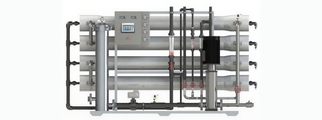
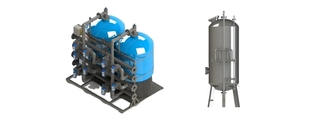
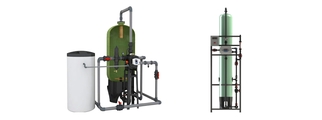
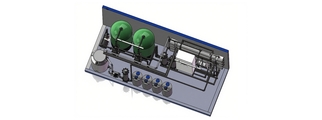
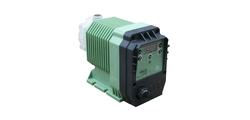
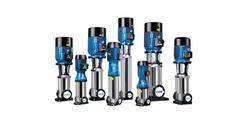
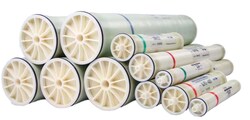
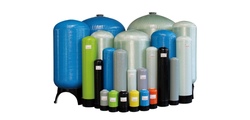
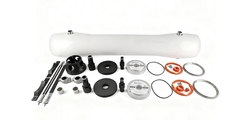
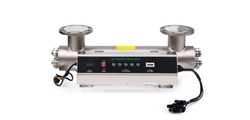
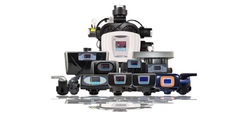
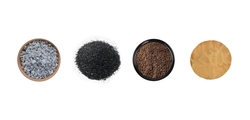
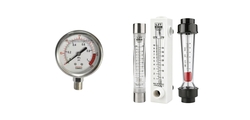
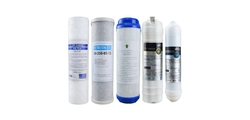
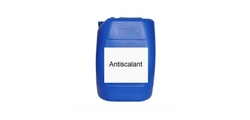
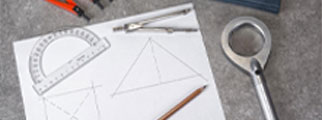



AQUALITEK- Aimee Hoo
AQUALITEK - Aimee Hoo